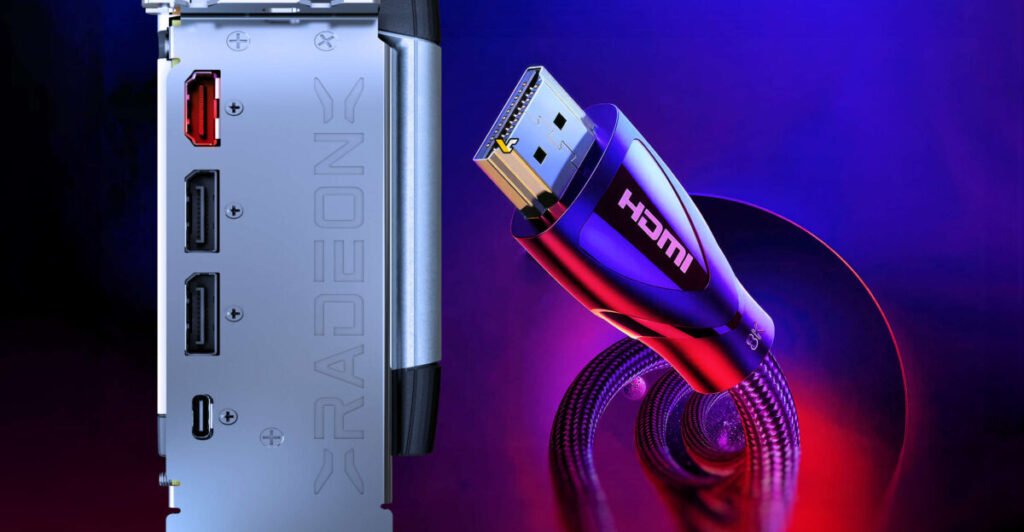Linux users hoping to achieve the highest-resolution image display and fastest frame rates through HDMI connections may encounter disappointment shortly.
The HDMI Forum, which oversees the HDMI standard, has informed AMD that they do not permit an open-source adaptation of the HDMI 2.1 (or HDMI 2.1+) specification. This restriction impedes features like AMD’s FreeSync from functioning over HDMI connections at certain resolutions and frame rate combinations, such as 4K at 120 Hz or 5K at 240 Hz.

In January 2021, the Linux blog Phoronix highlighted that the HDMI Forum did not provide public access to the HDMI 2.1 specification. Alex Deucher, an AMD engineer known for his contributions to the company’s open-source initiatives, has maintained a related bug thread for over two years. However, just yesterday, he announced the disappointing outcome of the Forum’s decision.
In February 2023, Deucher stated that he was collaborating with AMD’s legal team to navigate the company’s obligations to the HDMI Forum while determining what could be delivered. Two months later, he reported that AMD had achieved basic functionality and was now assessing each feature with legal to ensure compliance. Throughout the summer and fall of 2023, the legal review continued, and by October, the decision rested with the HDMI Forum.
Antonio Banderas net worth 2024: Biography, age, spouse, movies, kids, height
On Wednesday afternoon, Deucher offered the current resolution:
The HDMI Forum has rejected our proposal unfortunately. At this time an open source HDMI 2.1 implementation is not possible without running afoul of the HDMI Forum requirements.
-Alex Deucher
Ars Technica has reached out to the HDMI Forum, AMD, and Deucher for additional comments and will update the article with any new information received. X.org was also reportedly involved in negotiations with the HDMI Forum.
Membership in the HDMI Forum requires a minimum fee of $15,000. While AMD is listed as a member, this likely does not entail offering an implementation of a specification for public use. The member agreement, which prohibits such actions, is not publicly available, nor is there an addendum for members linked from the Forum’s website. A source code license found on the Forum’s site does not appear to offer much flexibility.
Phoronix and certain commenters have proposed the possibility of interference from media companies worried about digital video piracy. While this explanation lacks specific details, it remains a plausible speculation.
With HDMI support for Linux users in question, DisplayPort emerges as the preferred option for achieving the highest-quality output. AMD now faces a decision whether to incorporate newer HDMI support into closed-source Linux drivers or direct its most demanding customers towards alternative solutions.

